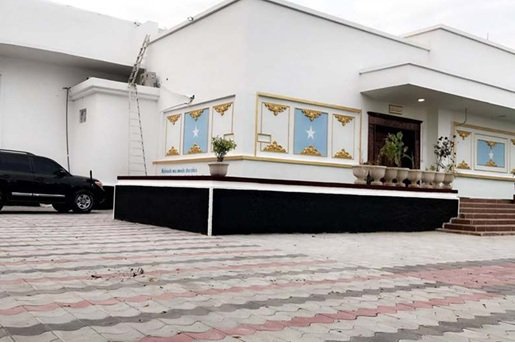By Hassan Yusuf
In a country grappling with recurring insurgency, fragmented governance, and a paralyzed reform agenda, Somalia’s federal government has proposed what appears to be a giant leap forward: a nationwide “one person, one vote” (OPOV) electoral model. Presented as a historic shift from clan-based power-sharing to democratic legitimacy, the plan promises a future where every citizen’s voice counts equally.
Yet the grand vision is detached from the grim reality. Not only does the federal government control only limited portions of the country, but many of the critical building blocks for a functioning democratic election—security, civic infrastructure, trust in institutions, and administrative capacity—are largely absent. The OPOV proposal, far from being a road to reform, appears to be a strategic diversion: a political mirage used to mask failures in governance, deflect public scrutiny, and postpone confronting Somalia’s deeper crises.
Who Really Governs Somalia? Fragmented Authority and the Myth of National Control
For any national electoral system to work, a state must have jurisdiction over its territory. This is not the case in Somalia. The Federal Government of Somalia (FGS), headquartered in Mogadishu, has minimal control beyond a handful of districts and military outposts. Even within the capital, Al-Shabaab conducts regular assassinations and bombings, while intelligence networks and extortion rackets run parallel to official structures.
Beyond Mogadishu, the picture becomes even more fractured. The federal member states—Puntland, Jubaland, Galmudug, South West, and Hirshabelle—operate with high degrees of autonomy, often in open defiance of Villa Somalia. Puntland recently conducted its own regional election independently. Jubaland continues to challenge the FGS’s authority over border regions and maintains its own armed forces and security protocols. Meanwhile, Galmudug is riven by intra-clan conflicts and insurgent incursions.
Most glaringly, the Somaliland administration in the north, which declared independence in 1991, has completely divorced itself from federal politics. Hargeisa runs its own elections, governs independently, and categorically rejects any federal overtures.
Even more troubling is the fact that vast rural areas of southern and central Somalia are under the control of Al-Shabaab. The group not only operates militarily, but governs administratively—collecting taxes and enforcing strict laws. Citizens in these areas are more likely to fear federal soldiers than trust them with their votes.
Thus, when Somalia’s federal leadership speaks of holding a national election under OPOV, it raises an uncomfortable question: what nation, exactly, are they referring to?
Voter Registration Without a State: The Collapse of Civic Infrastructure
Aside from territorial fragmentation, Somalia’s electoral infrastructure is virtually non-existent. The country lacks a national civil registry, with millions of Somalis unable to prove their age, citizenship, or residency. There is no functioning national database, and state-issued identification is rare, especially in rural areas.
The introduction of biometric voter registration—proposed by the National Independent Electoral Commission (NIEC)—sounds modern, but it’s largely aspirational. The challenges begin with logistics: thousands of polling stations would need to be established and secured across the country. Staff would need to be trained, databases built, and mobile registration units deployed to remote areas. In the absence of roads, electricity, or even basic internet coverage, this process is virtually impossible in most districts.
Moreover, the social and political environment is hostile to such undertakings. In many areas, especially where insecurity is high, residents will be afraid to register for fear that their information could fall into the hands of either militants or rival clans. Without public trust and security guarantees, even the best-designed registration systems will fail.
The danger is not just logistical failure—it is selective implementation. What happens if voter registration takes place only in pro-government districts and ignores opposition or insecure areas? The result would be a skewed voter base and a delegitimized electoral outcome.
In such an environment, voter registration is not just a bureaucratic step—it is a high-risk political act, one that could inflame tensions and deepen mistrust. As it stands, it is more accurate to call it wishful thinking rather than a credible first step toward democratic governance.
Somalia’s push for a one person, one vote electoral model is, at face value, admirable. But in practice, it is detached from the lived reality of most Somalis. Insecurity reigns in the capital, armed non-state actors control large regions, and the fundamental infrastructure of citizenship is missing.
Rather than confronting these structural failures, the current administration has opted to showcase OPOV as a symbol of progress—a banner under which it can rally international support, secure donor funding, and distract citizens from the erosion of public services and rising discontent. When it inevitably fails, the blame will likely fall on opposition spoilers, federal member states, or even foreign interference.
True democratization in Somalia requires more than declarations. It needs a functioning state. Until the country can secure its capital, negotiate genuine federal cohesion, and rebuild the civil registry, the dream of universal suffrage will remain precisely that—a dream.
In the meantime, the government must resist the temptation to use elections as public relations tools, and instead focus on building the real foundations of a future democratic state: peace, trust, and competent institutions.
Hassan Yusuf
Email: hyusufka@gmail.com
———
Related articles
Federalism Fractured- Part V: The Danger of a Centralized Election and a Call for Action By Isha Qarsoon
Somalia’s democracy on life support By Abdiqani H


Leave a Reply